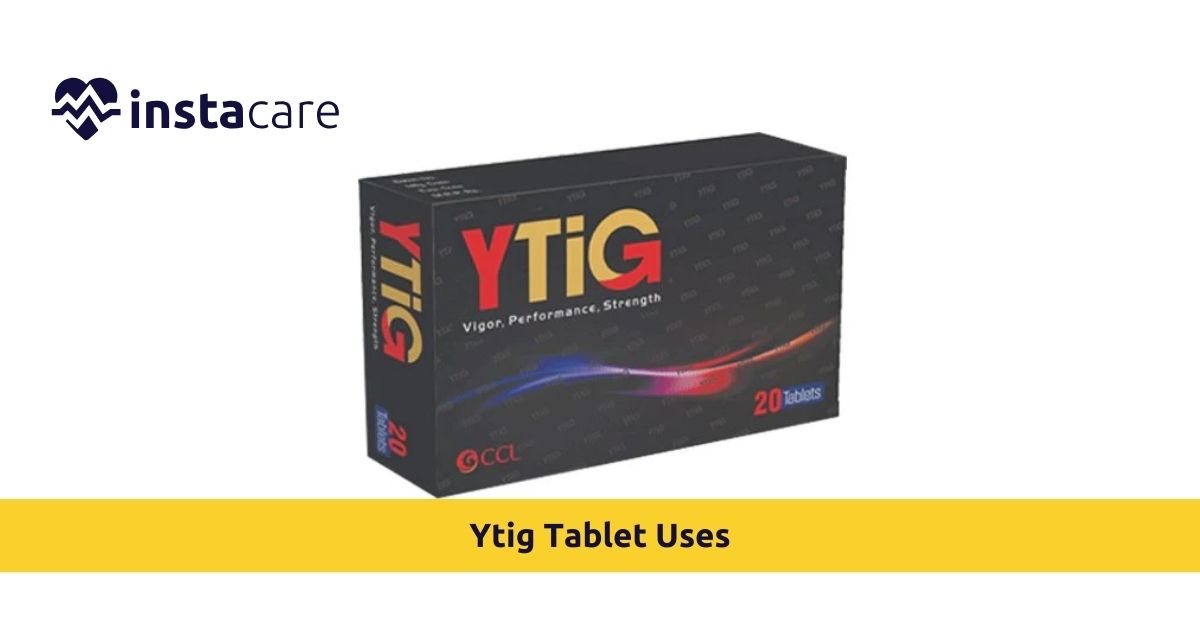Ytig is the drug form of Yttrium-90 microspheres, which is most significantly used in the treatment of liver cancer, especially hepatocellular carcinoma (HCC). This new treatment falls into the category of selective internal radiation therapy (SIRT) or radioembolization. In this review article, we will be talking about different ways on how Ytig tablets are used, their mechanism, benefits, potential side effects, and some questions that are often asked.
What is Ytig?
Ytig is a prescription medication that is applied in the
management of certain types of cancers of the liver. It employs use of
radioactive Yttrium-90 impregnated in the form of microspheres. It would,
therefore, provide a means of radiation to the tumor to penetrate it while
having the least effect on healthy tissues. This, thus, makes it useful
in the reduction of the size of tumors or slowing the growth of such tumors.
Mechanism of Action
Ytig works by providing high doses of radiation straight
into the cancer cells located in the liver. The microspheres are injected
directly into the hepatic artery. From there, it goes straight to the tumor
site. Once lodged in the blood vessels of the tumor, the radioactive
microspheres give off localized radiation which will destroy the cancer cells.
Uses of Ytig Tablets
1. Treatment of Hepatocellular Carcinoma (HCC)
HCC or the hepatocellular carcinoma, is the most common liver's first order. Ytig, will thus be mainly administered among patients found out and diagnosed to have HCC in nature, but are however incapable to undergo surgical resection and are not eligible to obtain liver transplantation.
- Palliative Therapy: It can give relief from some symptoms
generated by the disease - among them the pain caused due to it, with
significant weight loss and impairment of the liver, usually during advanced
HCC's attack in patients.
- Tumor Control: Ytig can control the tumor growth by providing direct radiation to the tumor, which may potentially increase survival.
2. Bridge to Transplantation
Ytig is used as a bridge therapy in patients who are awaiting liver transplantation. It assists in controlling tumor growth during the waiting period of patients on the transplant list.
- Tumor Stabilization: Ytig can ensure that the patient will
be ready for transplant when the organ is available by regulating the progress
of HCC.
- Liver Function Improvement: Management of the tumor will make it easier and safer to undertake the transplant because the organ will be healthier.
3. Metastatic Liver Cancer
Ytig is administered to patients whose cancers metastasized to the liver from other sites which include colorectal or breast cancers.
- Targeting Liver Lesions: The localized radiation therapy is
advantageous in targeting metastatic lesions in the liver, and it may reduce
the size of the tumor and alleviate symptoms.
- Combination Therapy: Ytig can be administered as an adjunct with other therapies, such as systemic chemotherapy or targeted therapies, for better overall treatment.
4. Pain Management
Liver cancer causes extreme pain due to the growth and malfunction of the tumor within the liver. Ytig helps in reducing the pain resulting from liver tumors.
- Localized Pain Relief: Perhaps radioactivity from Ytig could
lower the level of pain at the area of the tumor and possibly even enhance the
quality of life.
- Reduced Tumor Size: It will minimize the force applied to the neighboring organs and tissues, thereby a decrease in pain would be there.
View More: Duphaston 10mg- Significance Uses Side Effects Benefits
5. Quality of Life
This is really essential to quality of life amongst patients who suffer from end-stage liver cancer. Ytig may even work pretty well in that direction too.
- Symptom Management: By restraint of growth of a tumor and
relief of symptoms such as pain and jaundice, Ytig can improve the general
well-being of patients.
- Psychological Benefits: When there is proper management of cancer, the psychosocial outcomes will be favorable. This is because when their death is near at hand, they will harbor fears and melancholies over it.
6. Procedure with Minimal Invasive Measure
Ytig is administered as a less invasive surgical
intervention compared to the rest.
- AMBULATORY TREATMENT; The greater part of the treatment can
be provided as an ambulatory measure so that the patient may be discharged for
the day.
- Short Recovery Time: Because the procedure is least in terms of invasiveness, the recovery times are a lot shorter than with other more aggressive surgical interventions
7. Tailor-made Treatment Protocol
Ytig can be used as part of an individualized treatment
protocol that may best suit a patient's needs.
- Patient Eligibility: Each patient will have to be assessed
by an oncologist so that they can decide whether to administer the patient with
Ytig or not, therefore only those patients who will benefit from the medication
are given.
- Monitoring and Adjustment: The treatment plans can be adjusted according to the response of patients. Thus, a dynamic approach in the management of cancer can be employed.
Possible Side Effects of Ytig
Though there are many advantages that can be derived from
Ytig, one has to consider possible side effects:
- Fatigue: Fatigue may occur to the patient after undergoing
the treatment, which may be mild or severe.
- Nausea and Vomiting: Gastrointestinal symptoms can also be
presented in the form of nausea and vomiting.
- Abdominal Pain: It can present with mild to moderate
abdominal pain that is sensitive to the medication.
- Liver Dysfunction: Some patients can present with transient
liver dysfunction, and such patients can also improve with follow-up.
- Radiation Exposure: Though radiation is applied in a very localized area, a part of the radiation spills into other tissues and causes side effects.
Conclusion
New advanced liver cancer treatments for hepatocellular
carcinoma particularly by Ytig pills, are improving patient's outcomes and are
well recognized as controlling growth by the focused least invasive tumor
treatment for cancer and equally on quality of life of a patient who is suffering
from the most severe disease. In view of such a therapy with a discussion of
its advantages and disadvantages, it becomes pertinent that such a consideration
has to be made with between the patient and his doctors toward final decisions
most suitable to him.
Please book an appointment with the best Oncologist in Lahore, Karachi, Islamabad, and all major cities of Pakistan through InstaCare, or call our helpline at 03171777509 to find the verified doctor for your disease.





